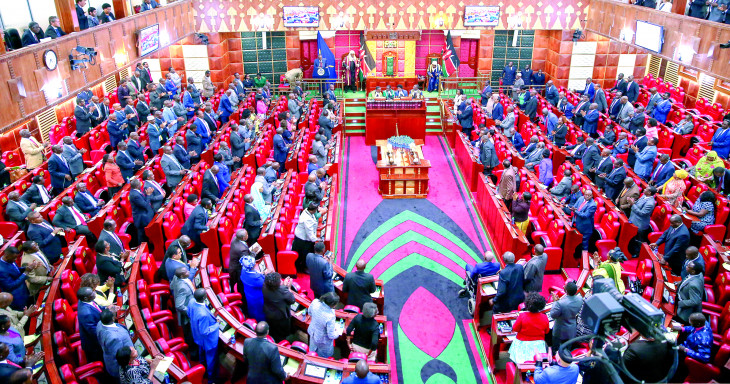Governors, senators need a sabbatical before switching seats
By Gathu.Kaara, May 16, 2022There are two very perplexing electoral scenarios about to take place in Kenya.
First is serving senators who are striving to become governors on the one hand, and the second is incumbent second-term governors who are looking for a soft landing by jumping onto the senators’ bandwagon, literally downgrading.
These two cases present pretty disturbing scenarios.
Let’s look at the first instance where senators want to be governors. Some of them are Mutula Kilonzo Jr (Makueni) and Kimani Wamatangi (Kiambu). On the face of it, this is all kosher.
However, it is a critical detail that the senators have been oversighting governors whom they now are going to be directly competing against. In cases where the governors have completed their mandatory two terms, it means the senators will be seeking to become governors of counties they have been directly supervising.
Kenya has witnessed senators having very antagonistic relationships with governors of counties they represent. One has to ask how much of this antagonism is related to the ambitions of the senator to succeed the governor in his or her county. Can a senator who is seeking to upgrade to governor really be impartial when oversighting their county?
Further, senators are privy to lots of confidential information by dint of their work. It gives the senator seeking to upgrade to governor a very unfair advantage over competitors. The ground needs to be levelled.
The second scenario involves the second-term governors, who, having been blocked by the two-term limit, are now seeking to downgrade to the senate job. Such include Jackson Mandago (Uasin Gishu), Martin Wambora (Embu) and Samuel ole Tunai (Narok).
If the governors become senators, they will then be sitting in judgement over their own cases when audit questions featuring their tenures come to the Senate. Can they really be impartial?
Worse, the senators now get power to destabilise the new governor, if they are unhappy at the programme being implemented. The new governor might have a programme that is diametrically opposed to that of the outgoing governor, who has now become their supervisor.
It is highly unlikely the outgoing governor-turned-senator will simply sit by and watch his pet projects being dismantled by the successor.
The two scenarios should be heavily discouraged. They do not augur well for good governance.
The best practice would be for a senator who wants to upgrade to governor to have a one-term cooling off period, during which time the influence and active information they had in the Senate becomes degraded. This cooling off period will also allow the new governor to settle down without being destabilised.
After the one-term cooling off period, the former senator can now challenge the incumbent for the seat, among other competitors. They will now be on the same level.
The same goes for the incumbent governors who want to downgrade to the Senate. They should take a one-term cooling off-period. During this time, all matters pertaining to their tenure in office will have cleared the pipeline.
There is no possibility of them sitting in judgement over their own matters. Their capacity to destabilise any incumbent governor will also have been thoroughly degraded. They are now sanitised to assume the office of senator.
If the August elections is anything to go by, this trend will become more pronounced, especially if the current attempts are successful. This will be very unhealthy. It is likely to turn the Senate into a house where senators spend their time trying to degrade governors as they wangle for vantage with an eye to the next elections.
It will not augur well for the relationship between the Senate and the Council of Governors, strained at the best of times. The ultimate loser is county residents, caught between feuding governors and senators each of whom are eyeing each others’ positions.
— gathukara@gmail.com
